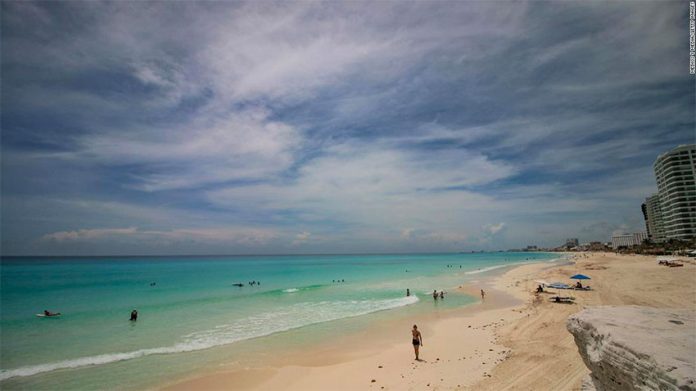Two protests and the arrest of 12 people for sex trafficking have revealed that forced prostitution is just beneath the veneer of sun and sand in Cancún and Playa del Carmen, Quintana Roo.
Last week, protesters demonstrated on behalf of the 21 victims of the sex trafficking rings, shouting “We want justice!” and “No more impunity!” outside each city’s courthouse.
Students, activists and even members of a motorcycle club gathered to denounce forced prostitution as judges presided over preliminary hearings in two of the state’s largest sex trafficking cases, in which foreign women were brought to Mexico to work in spas and then forced into prostitution.
The state Attorney General’s Office conducted raids on two locations in the resort cities on July 30 in which a total of 12 people were indicted on several charges, including human trafficking.
Quintana Roo Attorney General Óscar Montes de Oca said that dozens of women, many from foreign countries, were held captive. “They advertised as a spa business; but in reality, there were sexual acts happening in those two places where women were being exploited,” Montes de Oca told CNN.
Online ads offering “the best escorts in Playa del Carmen” accompanied by suggestive photos of women ran in obscure corners of the dark web for years, Montes de Oca said, until they were brought to the attention of investigators.
In all, 21 young women from Mexico, Argentina, Venezuela, Colombia and Germany were freed by authorities.
All had been lured by offers of high-paying jobs as personal assistants or spa therapists that didn’t pan out upon arrival in Mexico, Montes de Oca said. “Once here, they would tell them that they had to pay for their transportation, plane tickets [and] immigration processing and that the way to pay for that was through prostitution. If they refused, they were threatened with physical harm or worse,” he said. The women’s passports and ID were seized by traffickers to prevent their escape.
Human trafficking is not an anomaly in Mexico by any means. In a 2017 raid in Toluca, 24 foreign women were freed after being lured here with high-paying jobs and forced into prostitution.
The U.S. State Department reports that Mexico identified 706 victims of human trafficking in 2018, but the actual number is suspected to be significantly higher as organized crime has become involved. As a former pimp from Mexico City told CNN in 2015, “You can only sell a drug once, but you can sell a woman countless times.”
Mexican actress and activist Claudia Lizaldi, who attended Thursday’s Cancún protest, said it was time action was taken to end these kinds of crimes in Mexico. “Nobody deserves to lose a child to human trafficking. No child deserves to be a victim of human trafficking. No woman, regardless of her country of origin, should be a victim of human trafficking. We, as Mexicans, shouldn’t have to put up with this reality where Mexico is a top destination for sexual tourism,” she said.
After being forced to work as prostitute across Mexico for four years beginning at the age of just 12 during which she says she was raped some 43,200 times, human trafficking victim Karla Jacinto is outspoken about her experiences and is steadfast in her commitment to prevent the same thing from happening to other women.
Jacinto, who has visited the Vatican and testified before the U.S. Congress to end human trafficking, said she was infuriated that it continues to happen.
“We need more prevention efforts, more help. I want all of society not to see this as something normal, to see this as something that really could happen to one of your children.”
Under Mexico’s 2012 anti-trafficking law, anyone convicted of sex trafficking can face from five to 30 years in prison.
Source: CNN (en)
